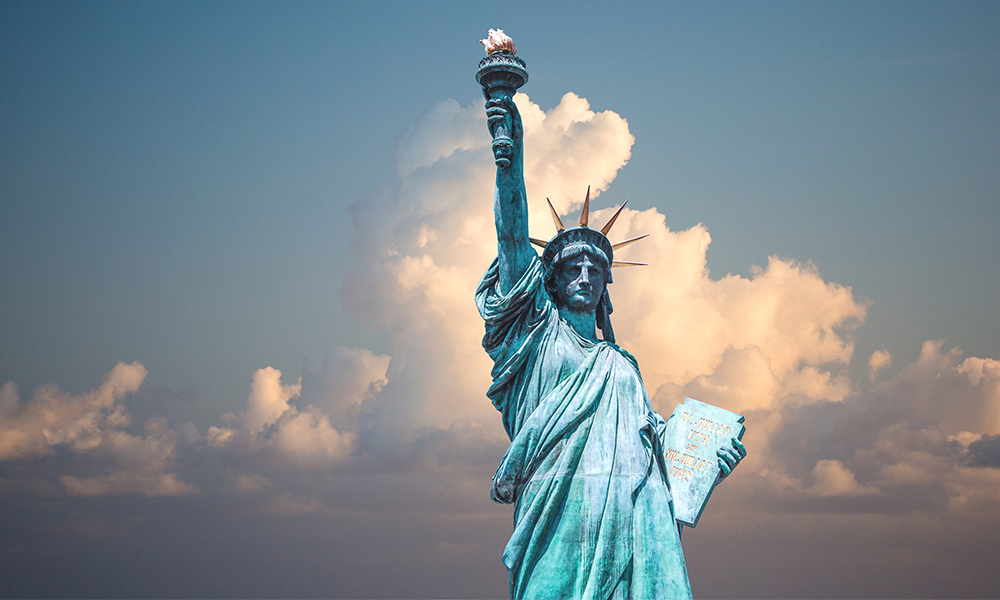 In the ultimate imprimatur of mainstream acceptance, the 10th annual Cannabis World Congress & Business Expo was held June 5-6 in Manhattan’s Javits Convention Center, the Big Apple’s premier venue for trade shows and industry confabs. And the event had the open participation of New York city and state government agencies, as well as capitalist enterprises from around the country and the planet.
In the ultimate imprimatur of mainstream acceptance, the 10th annual Cannabis World Congress & Business Expo was held June 5-6 in Manhattan’s Javits Convention Center, the Big Apple’s premier venue for trade shows and industry confabs. And the event had the open participation of New York city and state government agencies, as well as capitalist enterprises from around the country and the planet.

 The arrival of a major US multi-state operator in Bangkok is a sign of the global cannabis industry's big ambitions for Thailand, the first Asian country to decriminalize. But with enabling legislation still pending, the regulatory environment remains uncertain.
The arrival of a major US multi-state operator in Bangkok is a sign of the global cannabis industry's big ambitions for Thailand, the first Asian country to decriminalize. But with enabling legislation still pending, the regulatory environment remains uncertain. Alabama's Gov. Kay Ivey signed a bill May 17 legalizing the use of medical cannabis products in the state—on strictly limited terms. The new law, coming after decades of Republican opposition, allows use of extracts, tinctures, tablets or gel cubes—but not herbaceous flower, or any other products that can be smoked or vaped. Edibles such as cookies or candies are also barred.
Alabama's Gov. Kay Ivey signed a bill May 17 legalizing the use of medical cannabis products in the state—on strictly limited terms. The new law, coming after decades of Republican opposition, allows use of extracts, tinctures, tablets or gel cubes—but not herbaceous flower, or any other products that can be smoked or vaped. Edibles such as cookies or candies are also barred. As political and legal space opens for cannabis in state after state, the idea of caps on the potency — whether of flower, extracts or edibles — is gaining currency. But voices in the cannabis industry view this as a phobic response rooted in the flawed assumptions of prohibition.
As political and legal space opens for cannabis in state after state, the idea of caps on the potency — whether of flower, extracts or edibles — is gaining currency. But voices in the cannabis industry view this as a phobic response rooted in the flawed assumptions of prohibition. The new budget just released by New York's Gov. Andrew Cuomo includes his promised cannabis legalization measure. But activists in the Empire State will be watching closely to see if the proposed legislation delivers on his pledge to instate legalization in a way the corrects the social harms of prohibition.
The new budget just released by New York's Gov. Andrew Cuomo includes his promised cannabis legalization measure. But activists in the Empire State will be watching closely to see if the proposed legislation delivers on his pledge to instate legalization in a way the corrects the social harms of prohibition. Growing numbers around the United States and the world are using cannabis to treat a wide spectrum of medical conditions, and legal space is widening for them to do so. So it's a particular irony that hospitals as a rule bar cannabis from their premises. More voices in the medical industry are now grappling with this dilemma.
Growing numbers around the United States and the world are using cannabis to treat a wide spectrum of medical conditions, and legal space is widening for them to do so. So it's a particular irony that hospitals as a rule bar cannabis from their premises. More voices in the medical industry are now grappling with this dilemma. Political space for cannabis is generally on the upswing, but there are some intersecting trends that advocates will need to keep a sharp eye on in the coming year. Corporate cannabis will increase pressure on independent producers, while prohibitionists will try to leverage the vape health scare for anti-cannabis propaganda. And the cannabis industry's own terminology may be actually adding to the confusion.
Political space for cannabis is generally on the upswing, but there are some intersecting trends that advocates will need to keep a sharp eye on in the coming year. Corporate cannabis will increase pressure on independent producers, while prohibitionists will try to leverage the vape health scare for anti-cannabis propaganda. And the cannabis industry's own terminology may be actually adding to the confusion. 2019 saw advances for cannabis freedom on both the national and global stage—but also some near-misses, from New York state to Mexico, which have left activists frustrated if no less determined. As advocates prepare to carry the fight into 2020, here's a review of what was achieved—or almost achieved—over the past 12 months.
2019 saw advances for cannabis freedom on both the national and global stage—but also some near-misses, from New York state to Mexico, which have left activists frustrated if no less determined. As advocates prepare to carry the fight into 2020, here's a review of what was achieved—or almost achieved—over the past 12 months.





Recent comments
1 week 3 days ago
1 week 4 days ago
4 weeks 4 days ago
5 weeks 4 days ago
9 weeks 4 days ago
13 weeks 2 days ago
17 weeks 2 days ago
18 weeks 1 day ago
28 weeks 1 day ago
32 weeks 1 day ago